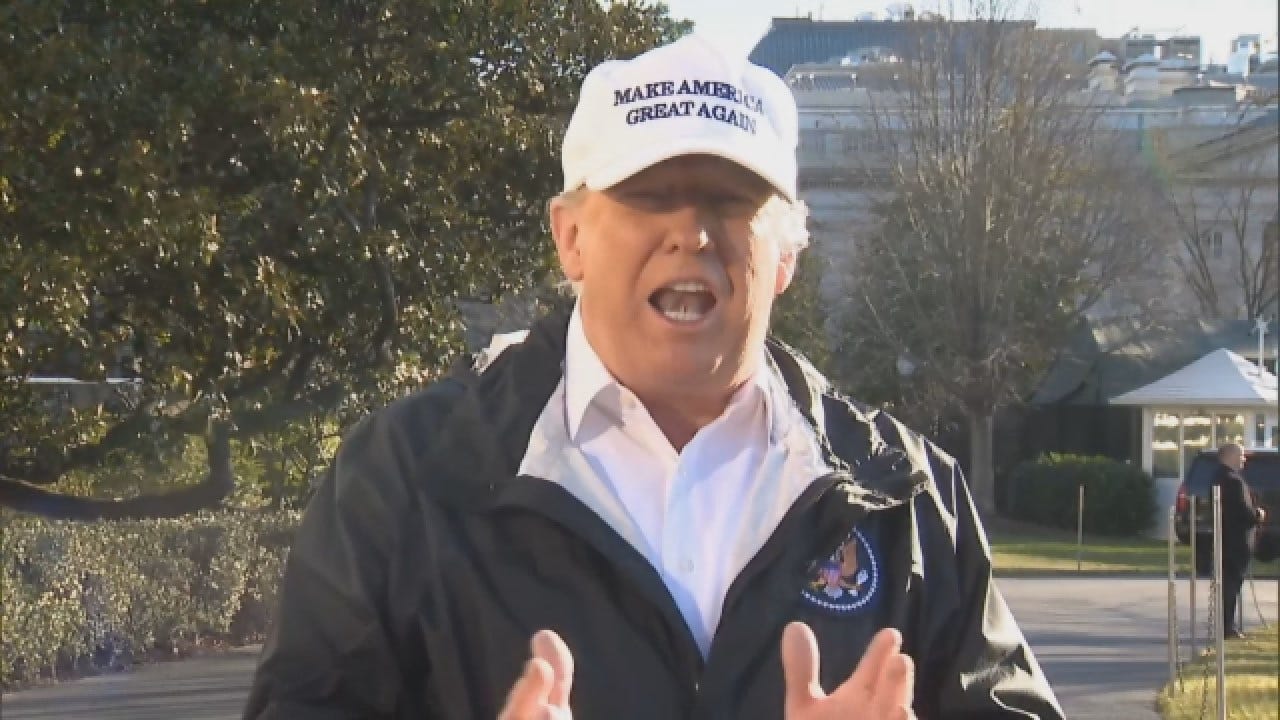A Trump National Emergency Declaration Could Face Challenges
President Trump and congressional Democrats remain at an impasse over his call for $5.7 billion for a southern border wall and their refusal to provide it.Thursday, January 10th 2019, 11:13 am
President Trump and congressional Democrats remain at an impasse over his call for $5.7 billion for a southern border wall and their refusal to provide it. Unable to make any headway in convincing House and Senate Democrats to provide him the funding in exchange for ending the government shutdown, Mr. Trump has floated the idea of calling a national emergency at the border to get the wall built without congressional approval.
Mr. Trump has claimed that there is a "crisis at the border" due to the high number of people seeking to cross into the U.S. (though he does not differentiate between illegal immigrants and asylum seekers). But he addressed the nation from the Oval Office Tuesday evening, and did not call a national emergency.
He said last week that "I can do it if I want." So far, he has not. "I think we might work a deal," he reasoned Wednesday. But Mr. Trump went on to threaten, "And if we don't, I may go that route. I have the absolute right to do national emergency if I want."
After storming out of a contentious meeting at the White House with congressional leaders Wednesday, though, Mr. Trump might have a change of heart.
What does calling a national emergency mean?
Ironically, the National Emergencies Act of 1975 was intended to constrain the power of the presidency, to create a structure for the president to declare national emergencies in the post-Watergate era. Under that law, the president can declare a national emergency, but must outline the specific emergency powers he is using under existing statutes. So Mr. Trump would have to justify his actions using acts already passed by Congress.
Which statutes could Mr. Trump use to build the wall?
There are a few statutes which could allow the administration to use Pentagon money to build the wall, once he declares a national emergency. One would allow the secretary of Defense to "undertake military construction projects" which are "necessary to support such use of the armed forces."
Another statute allows the Pentagon to "apply the resources of the Department of the Army's civil works program," and to reprogram those resources "to construct or assist in the construction, operation, maintenance, and repair of authorized civil works, military construction, and civil defense projects that are essential to the national defense." Despite its name, the Army Corps of Engineers is made up almost entirely of civilians who administer construction contracts, so troops wouldn't actually be building the wall.
There are a couple of other smaller streams of money that would be available to the president, too, if he were to declare a national emergency. The defense secretary is permitted to undertake a military construction project if "the project is vital to the national security," but only $50 million is allocated for that each year, far short of Mr. Trump's $5.7 billion request.
Under the Immigration and Nationality Act, the president can declare an "immigration emergency," which is defined as when an "actual or imminent influx of aliens which either is of such magnitude or exhibits such other characteristics that effective administration of the immigration laws of the United States is beyond the existing capabilities." A state attorney general can request the president's response to an immigration emergency and detail what is needed to address it. However, only $20 million is available under that statute.
Could Congress overturn the declaration of a national emergency?
Congress can cancel a national emergency, but it would require a rare amount of bipartisanship. Congress would have to approve a joint resolution, which would easily pass the Democratic-controlled House but could face opposition in the Republican-majority Senate. If both houses pass the joint resolution, it would require the president's signature, and Mr. Trump would be unlikely to sign a bill which overturns his own declaration.
Congress would then have to pass the joint resolution with a veto-proof majority, meaning that two-thirds of both houses would have to approve the bill.
GOP moderate Sen. Susan Collins, of Maine, seemed displeased by the possibility that Mr. Trump might invoke the act. "I think that would be a very dubious move from the constitutional perspective," she told NBC News. "Without congressional authorization is not what I think is intended by the national emergency act."
What about a legal challenge?
Some argue that legal precedent set by the 1953 Supreme Court case Youngstown v. Sawyer prevents the president from using this power. In that case, the court found that the attempted nationalization of steel mills by President Harry Truman using his commander-in-chief power was unconstitutional.
"The decision imposed fundamental constitutional limits on the president's power to claim that a national emergency — in this case, the Korean War — allowed him to override express provisions preventing him from using those powers domestically," said Yale law professor Bruce Ackerman in an opinion piece in the New York Times last week. Democrats are also citing Youngstown v. Sawyer as evidence that Mr. Trump can't call a national emergency to build a border wall.
"Look, if Harry Truman couldn't nationalize the steel industry during wartime, this President doesn't have the power to declare an emergency and build a multibillion dollar wall on the border," Rep. Adam Schiff, chairman of the House Intelligence Committee, told CNN Sunday. "So that's a non-starter."
Ackerman also argued in his piece that calling a national emergency to build a wall would be illegal because of statutes saying that military forces could not be used for domestic purposes.
More Like This
January 10th, 2019
November 13th, 2024
October 28th, 2024
October 17th, 2024
Top Headlines
January 14th, 2025
January 14th, 2025
January 14th, 2025
January 14th, 2025










